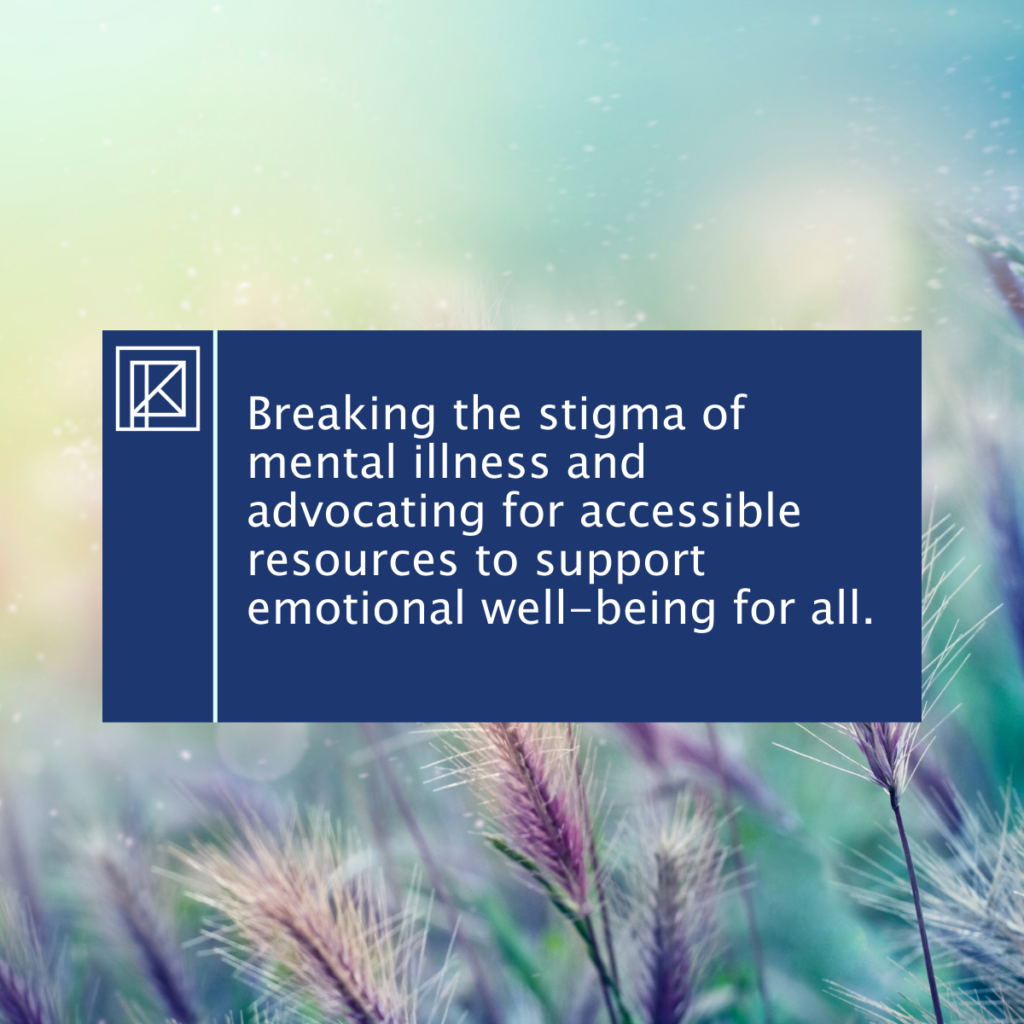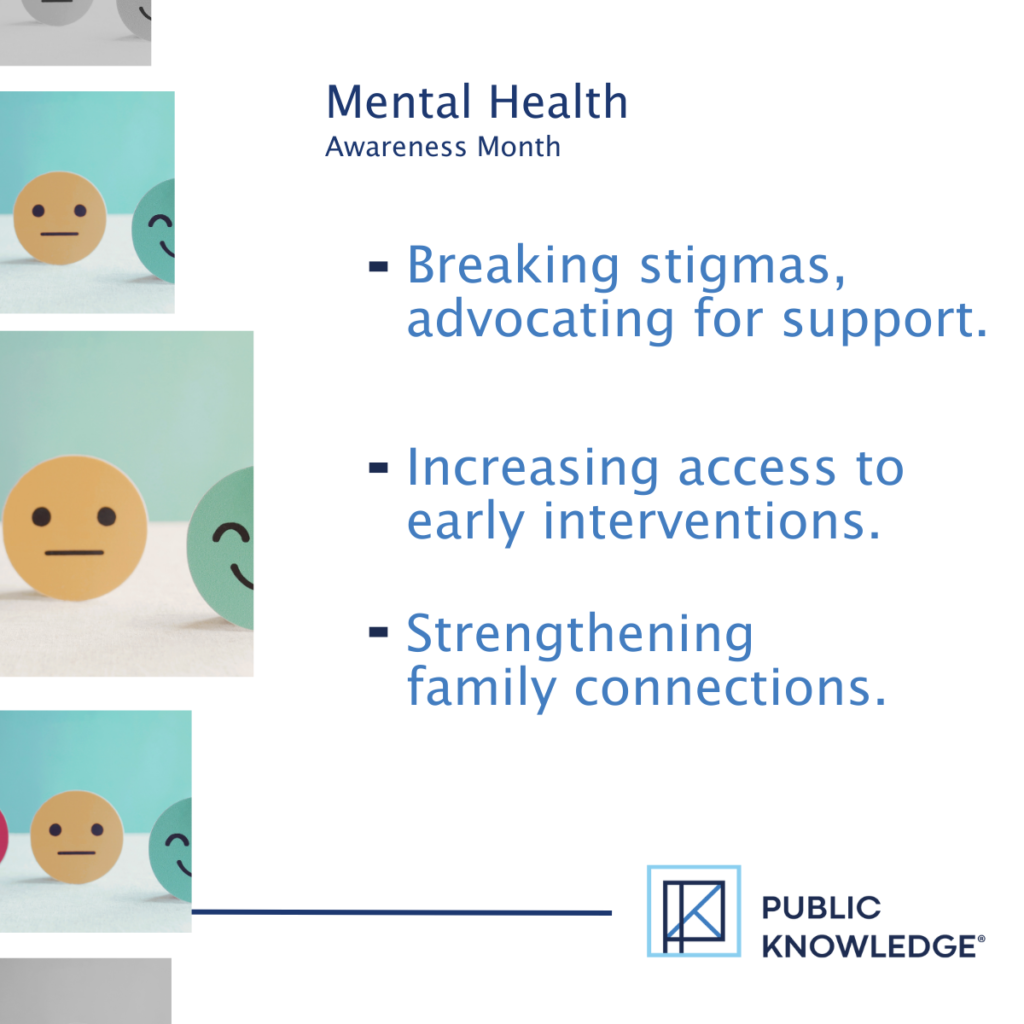Breaking stigmas, building stronger communities.
While conversations about mental health often center on personal well-being, the ripple effects of mental health support on family stability cannot be overstated. Mental Health Awareness Month is an opportunity to extend the conversation of how its impact extends to families and communities.
Family Relationships and Mental Health
Mental health challenges affect more than the individual experiencing them; they influence family dynamics, communication, and relationships. When a family member is struggling, it can lead to increased stress, miscommunication, and emotional distance within the household. However, when mental health is prioritized, families can build stronger connections, engage in empathy, and navigate challenges with greater resilience.
Access to Support Creates Stability

Access to mental health resources, such as therapy, support groups, or wellness programs, empowers families to address emotional and psychological challenges before they escalate. Early intervention reduces the risk of crises, creates healthier coping mechanisms, and strengthens the family unit. Programs that offer support, such as family counseling or mental health education, are critical for helping families thrive.
When individuals and families cannot access mental health services, the community faces significant costs, including increased emergency room visits, lost productivity, and higher unemployment rates. Untreated mental health challenges create financial and social burdens. Investing in accessible mental health care is essential for both individuals and the overall community.
Trends Shaping Mental Health Care in 2025
According to the Lyra Health 2025 Workforce Mental Health Trends Forecast, five key trends are shaping the future of workplace and community well-being:
- Employers must ensure benefits remain effective and accessible despite increasing costs.
- Organizations are prioritizing interventions for depression, anxiety, and burnout due to their significant
- workforce impact.
- More employers are enhancing benefits for working parents and caregivers.
- Leadership plays a key role, but many lack the resources to support employee well-being.
- Digital tools and artificial intelligence are improving access and personalized support.
Employers and Communities Play a Role
Organizations and community programs that offer mental health benefits, such as mindfulness apps, counseling services, or educational workshops, can make a profound difference. For example, offering resources that address stress, anxiety, or trauma can help families better support one another and create environments where everyone feels valued and understood.

At Public Knowledge®, our team members, their families, and friends have access to the Calm App. This resource encourages regular mental breaks, promotes mindfulness, build healthy sleep habits, and supports our firm’s initiative to cultivate mental fitness. Additionally, our firm provides multiple Employee Assistance Programs (EAP) to offer the right tools at the right time for addressing mental health needs.
Doing Our Part to Break the Stigma
Mental health stigma prevents many individuals from seeking the support they need. By encouraging open conversations and normalizing mental health care, we can create a culture where seeking help is seen as a sign of strength rather than weakness.
By prioritizing mental health support and understanding its connection to family stability, we can create a ripple effect of positive change. We all have the opportunity to use Mental Health Awareness Month to initiate open conversations, advocate for accessible resources, and inspire families to invest in their collective well-being.